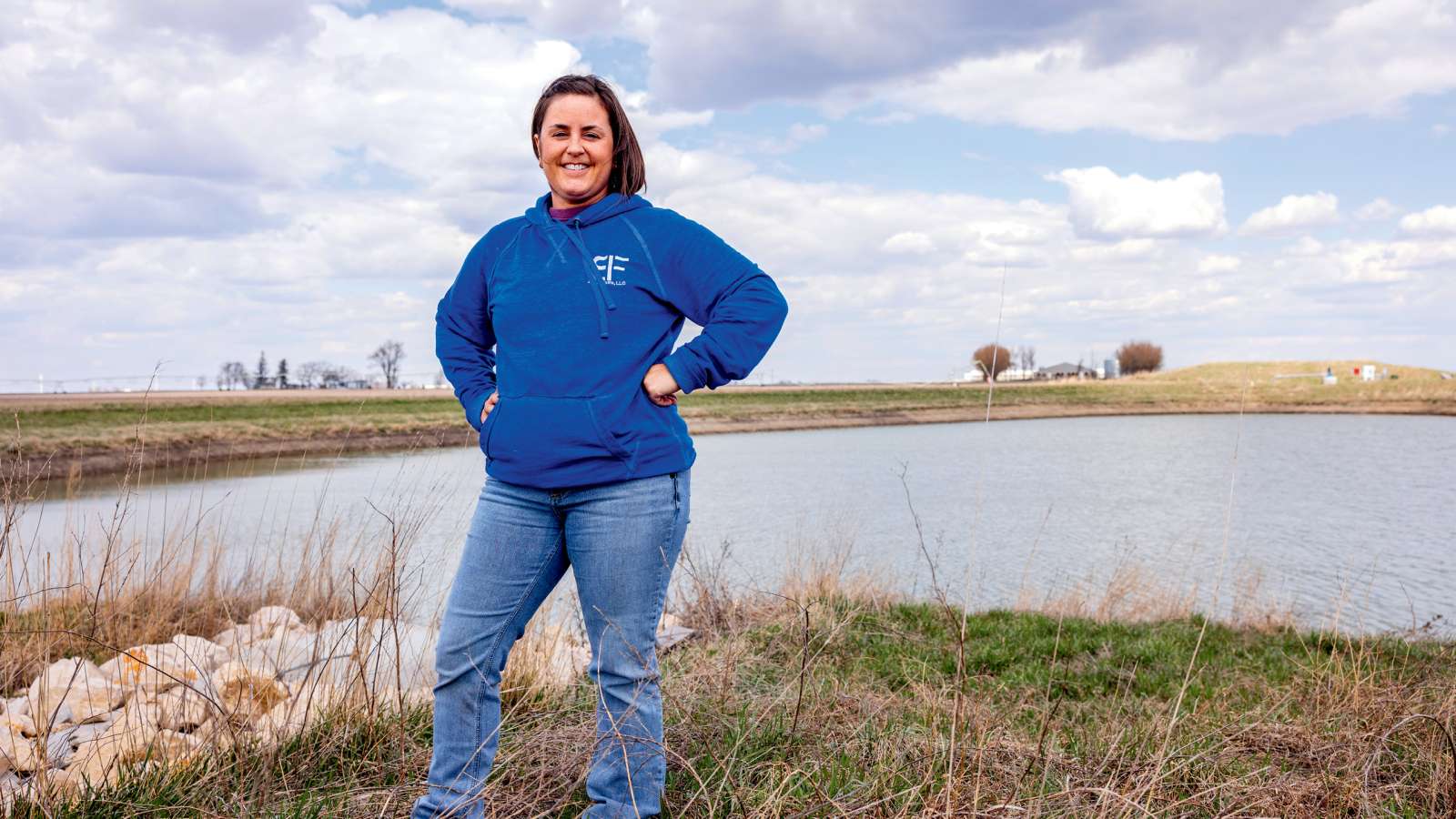Kellie Blair isn’t shy about how setbacks helped shape her agricultural career.
“I failed my first agronomy class miserably and had to drop it at midterm,” she says.
Now an award-winning farmer who is sought out to test innovative ideas in the field, Blair (’06) initially arrived on campus unprepared for academic rigor. Switching to the forestry program helped her find her footing — and forged her commitment to proactive and sustainable environmental solutions.
“I always knew I liked the conservation part of ag,” Blair says.
She spent her childhood working alongside her dad on their family’s farm in the Loess Hills of western Iowa and considers land stewardship essential. Studying soil science piqued her interest in nutrient planning and its job potential. Blair successfully added the agronomy major back in during her junior year and landed an industry role developing manure management plans after graduation.
“I had grown up with pigs and knew how to talk to and connect with farmers,” she says.
Other stakeholders were trickier. It wasn’t long before she realized she needed help communicating with community members who were wary of new facilities. So, Blair got involved in agricultural associations and began working with Iowa State University Extension and Outreach to build her skills.
“Extension was huge through all of the training I had to go through when I first started out, and it’s still huge for us now,” Blair says.
She and her husband, AJ (’04), manage Blair Farm, their fourth-generation family farm in Webster County. The Blairs are busy raising two teens and growing a business centered around conservation and continuous improvement.
In 2022, Progressive Farmer named the couple among “America’s Best Young Farmers,” highlighting their twists on commodity farming. The Blairs utilize cover crops and no-till practices for growing corn and soybeans. They launched a direct-to-consumer frozen meat business during the pandemic to complement their large beef feedlot and cow-calf enterprise. They even explored a potential supplier partnership with Oatly, the Swedish plant-based milk alternative brand.
“Throughout our farming careers, we’ve tried a lot of different things and gone different ways,” Blair says. “But we’ve had people behind us to help us out.”
Relationships they’ve built with ISU faculty play a significant role. A work-study position Blair held as an undergraduate student helping Lisa Schulte Moore, a natural resource ecology and management professor, has come full circle, as they now work together on quite a few projects. They are currently partnering with Iowa Learning Farms to tell their conservation story on their farm through blogs, webinars, and in-person field days.
The Blairs’ leadership in groups like the Iowa Soybean Association also exposes them to important issues and impactful opportunities. Blair traveled to a water quality summit in New Orleans, where she learned about flooding in the Gulf. Then, she served on a panel with a Louisiana shrimp farmer who shared how runoff impacts shrimping.
When the Blairs were later approached about participating in a grant-funded water-quality initiative that could help reduce nitrates flowing downriver, they saw a chance to be part of the solution. They created a large water retention pond designed to capture and recycle tile water through a center-pivot system that now irrigates 130 acres of crops on their property. Blair hopes the project will be both effective and economical.
“What we’re trying to do is to create resiliency on the farm,” she says.

